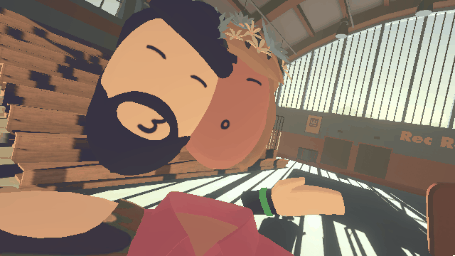I live in the interesting community of Grande Prairie, Alberta. Technically it is a small city with a population of around 65,000 and it is technically situated in an intermediate northern part of the province. I say “technically” because by way of feel and experience, Grande Prairie still holds to “small town,” we receive Northern Living Allowance and incentives to live here though not as fully as those say in the Territories, and the population fluctuates up to 125,000 on weekends because of Costco, Walmart, and the Prairie Mall. I should note that when my family moved to this community in 1995 the population was roughly 28,000. While the community has changed, the core remains the same, and when it comes to the professional counselling community, it’s a small one. Back to that small-town feel, experience, and all the conundrums of small-town ethics.
It is well-recorded that small town counsellors face unique challenges such as multiple relationships, limited resources and competence, and geographic and professional isolation (Schank, 1998). Luckily there are ethical codes and standards of practice established by the CCPA that provide guidance. Unluckily ethics are not black-and-white and one-size-fits-all. So, what have we got?
“Counsellors should discuss confidentiality with their clients and any third party payers prior to beginning counselling and discuss limits throughout the counselling process with clients, as necessary” (CCPA, 2015, p. 11).
Check.
“People are more likely to know each other in small communities and the counsellor is more likely to meet up with clients in non-professional situations. Practitioners in small communities protect private knowledge, and ensure confidentiality in the face of intricate social networks and lines of communication that lead to the availability of informally-gained knowledge” (CCPA, 2015, p. 11).
Check check.
“Counsellors, whenever possible, avoid entering into social, financial, business, or other relationships with current or former clients that are likely to place the counsellor and/or client in a conflict of interest and/or compromise the counselling relationship. This includes relationships via social media” (CCPA, 2015, p. 24).
Getting a little trickier, check.
“In rural communities, and in certain other workplace circumstances, such as in closed communities or remote, northern, and isolated areas, it may be impossible or unreasonable for counsellors to avoid social or other non-counselling contact with clients, students, supervisees, or research participants. Counsellors should manage such circumstances with care to avoid confusion on behalf of such individuals and to avoid conflicts of interest. Lack of anonymity requires rural counsellors to think carefully as they develop new social networks. Boundary management is a challenge in small communities as multiple relationships are inevitable.” (CCPA, 2015, p. 25).
Now we’re really into the weeds, especially considering people (myself included) with history in the communities they counsel in, but check.
If CCPA’s ethics codes seem straightforward and yet challenging, you are not alone. What do we do? How do we navigate the code? Professionally, one of my favourite research pieces includes a practical to-do list by Schank (1998), which can be found in full PDF version online. Of the 13-item list, I have found the particular items listed below integral, though all of Schank’s (1998) recommendations are worth knowing as a rural or remote counsellor:
- Recognize that ethics codes and or standards are necessary, but not sufficient (Schank, 1998, p. 279).
- Know relevant codes, regulations, and laws (Schank, 1998, p. 280).
- Talk directly with clients about the likelihood of out-of-therapy contact (Schank, 1998, p. 280).
- Set clear boundaries, both within yourself and with clients (Schank, 1998, p. 280).
- Be especially aware of issues of confidentiality (Schank, 1998, p. 280).
- Participate in ongoing consultation and discussion (Schank, 1998, p. 281).
- Know when to stop (Schank, 1998, p. 281).
Further I would like to add some personal tips that have helped me navigate these moments when your feet are on the ground, your eyes are open, you are not in the office, and a client or former client has been seen.
- Strive to maintain your natural facial expression upon sighting the individual. Internally I refer to this as my “poker face”, though it is not a single expression.
- Find a comfortable distance, if possible. For example, I often spot clients or former clients at the community gym and library, my eyes are looking for a space with an amount of distance to allow the individual their freedom to engage the environment while allowing myself to do the same.
- Use community sightings as a way to review informed consent and build the working alliance in follow-up sessions. I found a great value in discussing these sightings and interactions at the next session to review important client rights and touch in to the counselling relationship following these interactions.
- Be polite.
- Isolation is not the solution, exploring the community, finding comfortable spaces, and social connections are necessary components of therapist self-care that are not to be underestimated in importance.
To my fellow counsellors in your unique communities with your unique challenges, I wish you well and I hope you have found a helpful tip or two.
-Robyn
Canadian Counselling and Psychotherapy Association. Standards of Practice, 5th Edition, April 2015.
Schank, J. (1998). Ethical issues in rural counselling practice. Canadian Journal of Counselling, 32(4), 270-283.
https://files.eric.ed.gov/fulltext/EJ581163.pdf
*The views expressed by our authors are personal opinions and do not necessarily reflect the views of the CCPA



